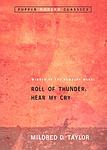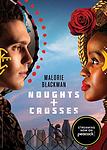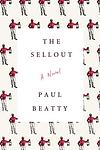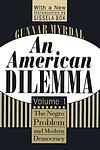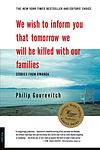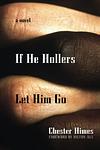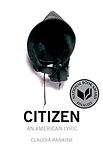The Greatest "Racism" Books of All Time
Click to learn how this list is calculated.
This list represents a comprehensive and trusted collection of the greatest books. Developed through a specialized algorithm, it brings together 284 'best of' book lists to form a definitive guide to the world's most acclaimed books. For those interested in how these books are chosen, additional details can be found on the rankings page.
Genres
The category of "Racism" in books refers to literature that explores the complex and often painful experiences of individuals and communities who have been subjected to discrimination, prejudice, and bigotry based on their race or ethnicity. These books may examine the historical roots of racism, its impact on society, and the ways in which individuals and communities have resisted and overcome it. They may also offer insights into the psychological and emotional toll of racism, as well as the ways in which it intersects with other forms of oppression such as sexism, homophobia, and classism. Overall, books in this category seek to raise awareness of the ongoing struggle against racism and to promote greater understanding and empathy among readers.
Countries
Date Range
Reading Statistics
Click the button below to see how many of these books you've read!
Download
If you're interested in downloading this list as a CSV file for use in a spreadsheet application, you can easily do so by clicking the button below. Please note that to ensure a manageable file size and faster download, the CSV will include details for only the first 500 books.
Download-
1. Invisible Man by Ralph Ellison
The novel is a poignant exploration of a young African-American man's journey through life, where he grapples with issues of race, identity, and individuality in mid-20th-century America. The protagonist, who remains unnamed throughout the story, considers himself socially invisible due to his race. The narrative follows his experiences from the South to the North, from being a student to a worker, and his involvement in the Brotherhood, a political organization. The book is a profound critique of societal norms and racial prejudice, highlighting the protagonist's struggle to assert his identity in a world that refuses to see him.
-
2. The Heart Is A Lonely Hunter by Carson McCullers
The novel explores the spiritual isolation of misfits and outcasts in a small town of the U.S. South. Its protagonist is a deaf-mute who becomes the confidant for various troubled souls including a black physician, a bitter labor activist, a lonely young girl, and a struggling café owner. Each pours their heart out to him, but he remains unable to respond, reflecting the deep human need for connection and understanding.
-
3. Go Tell it on the Mountain by James Baldwin
This novel explores the role of the Christian Church in the lives of African-Americans, both as a source of repression and moral hypocrisy and as a source of inspiration and community. It also, more broadly, examines the role of the Pentecostal Church in the African American experience. The narrative focuses on a fourteen-year-old boy's struggle to discover his identity amidst a family filled with secrets and a life marked by a religious community's strict moral code.
-
4. Cry, the Beloved Country by Alan Paton
"Cry, the Beloved Country" is a novel about a black Anglican priest from South Africa's rural Natal region who embarks on a journey to Johannesburg in search of his sister and son. The priest grapples with the racial injustice and social inequality of apartheid-era South Africa, while his son becomes involved in political activism and is wrongfully accused of a crime. The novel explores themes of love, fear, and social justice, while highlighting the destructive effects of apartheid on the human spirit and the South African landscape.
-
5. Waiting for the Barbarians by J M Coetzee
The novel is set in a small frontier town of an unnamed empire, where the magistrate lives a life of civil service and relative peace. His world is disrupted when the Empire declares a state of emergency due to rumors of barbarian uprising. The magistrate becomes a critic of the Empire's brutal and inhumane methods of dealing with the perceived threat, which leads to his arrest and torture. As he tries to understand his role in the vast political machinery, he also grapples with questions of power, justice, and humanity.
-
6. The Souls of Black Folk by W. E. B. Du Bois
This seminal work is a collection of essays that explores the history and condition of African Americans at the turn of the 20th century. It delves into the issues of race, class, and the socio-economic realities faced by black people post-emancipation. The author employs a combination of history, sociology, and personal narrative to present a powerful critique of American society, highlighting the struggle for civil rights, the importance of black spirituals, and the concept of "double consciousness" - the idea of viewing oneself through the lens of a society that sees you as inferior.
-
7. Another Country by James Baldwin
"Another Country" is a profound exploration of racial, sexual, and creative issues in 1950s Manhattan. The story follows the lives of various characters, including a jazz drummer, a Southern white woman, and a black playwright, among others. As the narrative unfolds, it delves into their struggles with identity, prejudice, and interpersonal relationships, offering a raw and unflinching portrayal of America's social and cultural landscape during a time of intense change and conflict.
-
8. Roll of Thunder, Hear My Cry by Mildred D. Taylor
Set in Mississippi during the Great Depression, this novel follows the life of a young African American girl and her family who are struggling to maintain their integrity, pride, and independence in the face of racism and social injustice. The family owns a piece of land which provides them some protection from the harsh realities of racial discrimination. The story is a poignant exploration of how they navigate through a prejudiced society, face social and economic challenges, and fight to keep their land.
-
9. Noughts and Crosses by Malorie Blackman
"Noughts and Crosses" is a thought-provoking novel set in a dystopian society where racial segregation is reversed. It follows the lives of two main characters: a girl from the ruling class (Crosses) and a boy from the underclass (Noughts). Despite their different backgrounds, they form a deep bond that eventually turns into a romantic relationship, challenging the societal norms and prejudices. The novel explores themes of love, racism, and power, offering a poignant commentary on the repercussions of societal divisions.
-
10. Incidents in the Life of a Slave Girl by Harriet Jacobs
This book is a poignant autobiography that depicts the life of a young woman born into slavery in the southern United States in the early 19th century. The narrative provides a harrowing account of her childhood and adolescence, marked by abuse and exploitation. In her desperate quest for freedom, she spends seven years in a tiny attic, hiding from her oppressive master. The narrative serves as a powerful critique of the brutalities of slavery, and a testament to the author's indomitable spirit and pursuit of freedom.
-
11. The Fire Next Time by James Baldwin
This book is a powerful exploration of race relations in America in the early 1960s. The author presents his experiences and observations in the form of two essays. The first is a letter to his 14-year-old nephew, discussing the role of race in American history. The second essay takes a broader look at the civil rights movement and the author's own experiences with religion and identity. Throughout, the author presents a passionate plea for the recognition of the humanity and dignity of all people, regardless of race.
-
12. The Color of Water: A Black Man's Tribute to His White Mother by James McBride
This book is a moving memoir that tells the story of a biracial man raised in a housing project in Brooklyn by his white, Jewish mother. The narrative alternates between the author's perspective and his mother's, providing a nuanced view of issues related to race, religion, and identity. The author's mother, a Polish immigrant, married a black man in the 1940s and raised twelve children in the midst of poverty and racial tension. Despite the hardships, she instilled in her children the importance of education and self-reliance. The book is a tribute to the strength, resilience, and love of this remarkable woman.
-
13. Roll, Jordan, Roll by Eugene Genovese
"Roll, Jordan, Roll" is a comprehensive exploration of slavery in the United States, specifically focusing on the complex relationships between slaves and their masters. The book examines how slaves managed to preserve their culture, humanity and dignity, while also highlighting the paradoxical nature of a system where slave owners were dependent on their slaves for their livelihoods. It delves into the ways in which slaves resisted their oppression, and the strategies they employed to survive and create their own communities within the confines of the brutal institution of slavery.
-
14. The Sellout by Paul Beatty
This satirical novel follows the story of an African-American man living in a small, agrarian town on the outskirts of Los Angeles. After his father's death, he attempts to reinstate slavery and segregation in his town as a means of creating a sense of identity for himself and his community. The novel explores themes of racial identity and equality in America, challenging societal norms and expectations through its provocative narrative.
-
15. An American Dilemma by Gunnar Myrdal
This book is a comprehensive sociological study on the issues faced by African Americans in the United States during the mid-twentieth century. The author examines the deep-rooted racial discrimination and inequality prevalent in American society, exploring its origins, implications, and potential solutions. The work is notable for its detailed analysis and its impact on subsequent civil rights movements.
-
16. Small Island by Andrea Levy
"Small Island" is a historical novel that explores the intertwined histories of Jamaica and the UK, as well as the themes of race, empire, and migration. The story is set in 1948 and is told from four different perspectives: two Jamaican immigrants, Hortense and Gilbert, who move to England after World War II, and an English couple, Queenie and Bernard. The narrative explores the racial tension, discrimination, and culture shock that the immigrants face in their new home, while also delving into the complexities of war, identity, and the British Empire.
-
17. Quicksand by Nella Larsen
"Quicksand" is a semi-autobiographical novel about a mixed-race woman named Helga Crane who, feeling out of place in both African-American and white societies, embarks on a journey of self-discovery. From the Southern United States to Denmark and back, she struggles with racial identity, sexual repression, and societal expectations, eventually marrying a reverend and becoming disillusioned with her life as a preacher's wife in the rural South. The novel explores themes of racial identity, class, and gender in the early 20th century.
-
18. We Wish to Inform You That Tomorrow We Will Be Killed With Our Families: Stories from Rwanda by Philip Gourevitch
This book is a chilling account of the Rwandan genocide that took place in 1994, where an estimated 800,000 to 1 million Tutsis and moderate Hutus were systematically murdered within a span of 100 days. The author provides a detailed narrative based on interviews with survivors and perpetrators, shedding light on the horrifying events, the international community's failure to intervene, and the aftermath of the genocide. The book serves as a powerful critique of political indifference and a poignant exploration of the depths of human brutality.
-
19. Silk by Alessandro Baricco
"Silk" is a historical fiction novel that tells the story of a 19th-century French silkworm merchant who travels to Japan for business. During his travels, he becomes enamored with a mysterious woman. His unrequited love for her haunts him for the rest of his life, even as he returns to France and continues his life there. The novel explores themes of love, longing, and the profound impact that brief encounters can have on one's life.
-
20. Dreams from My Father by Barack Obama
This memoir explores the life of a man who grew up in a multicultural family, with a Kenyan father and an American mother. The narrative delves into his early years in Hawaii and Indonesia, his self-discovery and racial awakening in Chicago, and his journey to Kenya to learn more about his father's heritage. The book provides an introspective look at the author's struggle with his racial identity, his relationship with his family, and his path to finding his place in the world.
-
21. If He Hollers Let Him Go by Chester Himes
Set in Los Angeles during World War II, the novel follows the life of an African-American shipyard worker who is battling racial tensions and discrimination. The protagonist, constantly living in fear of being falsely accused of a crime because of his race, is also dealing with a complicated relationship with a white woman, further complicating his life. The book explores the themes of race, class, and the psychological effects of racism and discrimination.
-
22. Between the World and Me by Ta-Nehisi Coates
The book is a profound work that explores the concept of race in America through the lens of the author's personal experiences. It is written as a letter to the author's teenage son, offering him a stark portrayal of his place in a society that is marked by racial injustice. The narrative provides a deeply personal analysis of American history and its lasting impact on the African American community, with the author sharing his experiences of fear, violence, and struggle. It is an exploration of the physical and psychological impacts of being black in the United States, and a call for a deeper understanding of the nation's racial history.
-
23. A Mercy by Toni Morrison
"A Mercy" by Toni Morrison is a historical fiction novel set in the late 17th century in America. The story follows a young slave girl named Florens who is sold by her mother to a Dutch trader in exchange for a debt. Florens is then taken to a plantation in Virginia where she becomes part of a diverse group of women, including a Native American, a white indentured servant, and the plantation owner's wife. The novel explores themes of race, gender, and power dynamics as the women navigate their relationships with each other and the harsh realities of life in colonial America.
-
24. Citizen: An American Lyric by Claudia Rankine
"Citizen: An American Lyric" is a compelling and thought-provoking exploration of racial prejudice in contemporary America. The book, written in a blend of poetry, prose, and visual images, delves into the everyday experiences and microaggressions that people of color face. It also addresses larger events from the news that have impacted the Black community. The book is a powerful commentary on race, identity, and belonging, challenging readers to confront their own biases and perceptions.
-
25. The Strange Career of Jim Crow by C. Vann Woodward
This historical analysis examines the history and development of racial segregation laws, known as "Jim Crow", in the United States. It explores the origins of these laws in the post-Civil War era, their enforcement in the South, and the eventual resistance and dismantling of them during the Civil Rights Movement. The book also challenges the perception that segregation was a natural outcome of racial tensions, instead arguing that it was a system carefully constructed by white elites to maintain economic and political control.
Reading Statistics
Click the button below to see how many of these books you've read!
Download
If you're interested in downloading this list as a CSV file for use in a spreadsheet application, you can easily do so by clicking the button below. Please note that to ensure a manageable file size and faster download, the CSV will include details for only the first 500 books.
Download






